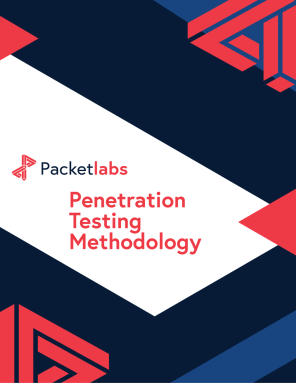Social Engineering
It starts with a single click. A "CEO" asks for an urgent wire transfer. A 'vendor' calls to reset credentials. A stranger flashes a badge and walks right in. In minutes, years of security investments are undone, without a single exploit of your network. As a Penetration Testing company known for the most thorough testing standards, we design our Social Engineering engagements to simulate the tactics real adversaries employ, across email, phone, SMS, and physical intrusion, exposing the human vulnerabilities that evade even the best-built defenses.
Your three-step path to individual-proof security:
Simulate Real‑World Threats: We deploy phishing, spear-phishing, vishing, smishing, and physical intrusion campaigns designed to mirror the exact and evolving tactics adversaries use.
See Weaknesses Unfold: Track clicks, credential leaks, and access attempts in real time. Our penetration testing team validates and analyzes every event.
Close Gaps Fast, Train Smarter: Receive a prioritized action plan that hardens processes, sharpens detections, and elevates employee security awareness and resilience against future attacks.
Turn your team into your strongest defense, not your easiest target.
Contact Us
Your three-step path to individual-proof security:
Simulate Real‑World Threats: We deploy phishing, spear-phishing, vishing, smishing, and physical intrusion campaigns designed to mirror the exact and evolving tactics adversaries use.
See Weaknesses Unfold: Track clicks, credential leaks, and access attempts in real time. Our penetration testing team validates and analyzes every event.
Close Gaps Fast, Train Smarter: Receive a prioritized action plan that hardens processes, sharpens detections, and elevates employee security awareness and resilience against future attacks.
Turn your team into your strongest defense, not your easiest target.
Service Highlights
Six Core Attack Vectors Simulated.
Packetlabs' Social Engineering engagements include Phishing (allowlisted), Spear-phishing (non-allowlisted), Vishing, Smishing, Physical Intrusion (tailgating), and USB drops. These controlled campaigns demonstrate how attackers can bypass technical defenses and exploit human trust to gain initial access to SaaS applications, email, code repositories, and other critical gateways. Why it matters: Attackers gain access through people, whether by logging in with stolen credentials or physically walking in through weak controls. By emulating the six most common social engineering tactics, we expose the gaps in both human and process defenses before adversaries do.

The Packetlabs Commitment

Reduce Dwell-time
The real value of a red‑team exercise isn’t the breach, it’s the lessons that follow. In our Post‑Mortem Debrief, Packetlabs sits down with your blue team to replay the attack minute‑by‑minute, highlighting every detection opportunity that slipped past the SIEM or SOC analyst.
For each gap, we identify the root cause, recommend the necessary improvements to close it, and prioritize fixes based on dwell-time reduction and business impact.

CREST-Accredited Expertise
You, your leadership, and your team can’t afford guesswork; but need trust and proof that the people testing your defenses meet the highest standards. That’s why Packetlabs earned CREST-accreditation, cybersecurity’s gold standard, awarded only after rigorous, hands‑on exams and ongoing audits by the Council of Registered Security Testers.

In-Depth Methodologies
Our Penetration Testing methodologies are derived from the SANS Pentest Methodology, the MITRE ATT&CK framework for enterprises, and NIST SP800-115 to ensure compliance with the majority of critical regulatory requirements. Why? To guarantee a thoroughness that 100% automated testing can't deliver.
Emphasis on Cross-Team Learning
82% of social engineering-related data breaches contain a human element, making the outcome of Social Engineering exercises critical for Employee Awareness Training, cybersecurity roadmaps for stakeholders, regulatory compliance, and, above all, a security posture strong enough to fend off increasingly sophisticated attacks.
Resources

Penetration Testing Methodology
Our Penetration Security Testing methodology is derived from the SANS Pentest Methodology, the MITRE ATT&CK framework, and the NIST SP800-115 to uncover security gaps.
Download Methodology









